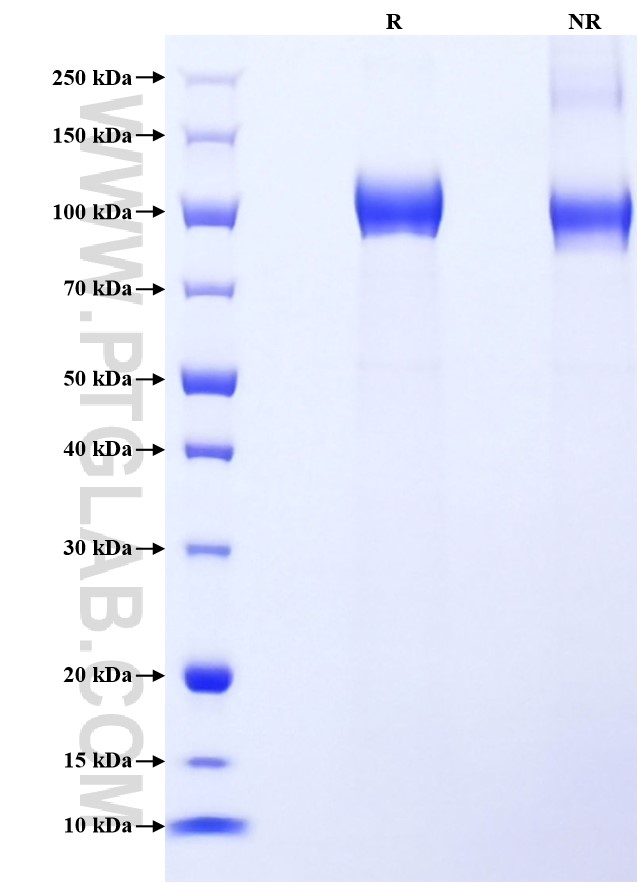Recombinant Human CD22 protein (Myc Tag, His Tag)
种属
Human
纯度
>90 %, SDS-PAGE
标签
Myc Tag, His Tag
生物活性
未测试
验证数据展示
产品信息
| 纯度 | >90 %, SDS-PAGE |
| 内毒素 | <0.1 EU/μg protein, LAL method |
| 生物活性 |
Not tested |
| 来源 | HEK293-derived Human CD22 protein Asp20-Arg687 (Accession# P20273-1) with a Myc tag and a His tag at the C-terminus. |
| 基因ID | 933 |
| 蛋白编号 | P20273-1 |
| 预测分子量 | 80.1 kDa |
| SDS-PAGE | 90-120 kDa, reducing (R) conditions |
| 组分 | Lyophilized from 0.22 μm filtered solution in PBS, pH 7.4. Normally 5% trehalose and 5% mannitol are added as protectants before lyophilization. |
| 复溶 | Briefly centrifuge the tube before opening. Reconstitute at 0.1-0.5 mg/mL in sterile water. |
| 储存条件 |
It is recommended that the protein be aliquoted for optimal storage. Avoid repeated freeze-thaw cycles.
|
| 运输条件 | The product is shipped at ambient temperature. Upon receipt, store it immediately at the recommended temperature. |
背景信息
CD22, also known as Siglec-2 (sialic acid binding Ig-like lectin 2) or BL-CAM (B-lymphocyte cell adhesion molecule), is a 130-140 kDa, B-cell restricted, type I transmembrane glycoprotein belonging to the immunoglobulin gene superfamily. The expression of CD22 is developmentally regulated. It is expressed at low levels in the cytoplasm of pro-B and pre-B cells and present on the cell surface only at mature stages of B-cell differentiation. Cell surface expression is lost during terminal differentiation into plasma cell and after B-cell activation. CD22 is an inhibitory receptor for B-cell receptor (BCR) signalling, preferentially binds to alpha-2,6-linked sialic acid and mediates B-cell B-cell interactions. It plays a crucial role in activation and differentiation of the B-cell.
参考文献:
1. Clark EA, et al. (1993) J Immunol. 150(11):4715-8. 2. Nitschke L, et al. (1997) Curr Biol. 7(2):133-43. 3. Carnahan J, et al. (2003) Clin Cancer Res. 9(10 Pt 2):3982S-90S.
